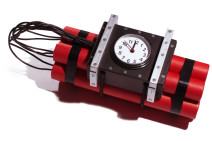List of Specific Industries
North American Industry Classification System (NAICS) codes for this industry
[ 541720 ] = Research and development in the social sciences and humanities — Sociology research and development services
[ 813910 ] = Business associations — Industrial associations
[ 922120 ] = Police protection — Criminal investigation offices, government
[ 922190 ] = Other justice, public order, and safety activities — Criminal justice statistics centers, government
Industry Description
Today’s home networks are simple assemblies of digital products linked together through a network computer to monitor equipment, activate entertainment devices, or protect a home and its occupants. In the future, there may be much more. A home network may be synonymous with a computer-based intelligence that makes decisions for itself and interacts with other intelligent computers and humans. The home network and its controlling computer-based intelligence may become a living, growing, responsive, creative being — someone that you communicate with and possibly form a respectful relationship with.
[ The following was taken from “The Digital Home Network: Our Homes as Digital Centers”, a white paper by Jack Farnlacher. Here is Section IV.D.1 “Retaining Ethical and Moral Balance”. The paper’s use of DHN (Digital Home Network) has been replaced with “home network”, “CBI” has been replaced with “Computer-Based Intelligence”, both as used in this Industries list. Footnotes are as they appear in the paper. ]
To successfully develop home networks, we must recruit the help and support of a diverse cross-section of talent. But this in itself is not enough. There must also be professional relationships with qualified people who support a shared responsibility toward mankind , live their ethical principles , and apply these concepts to the work in which they are involved.
An advancement of technology must be integrated with a living statement of our ethical and moral responsibility[1]. Ultimately, the interests of others will be at stake. We must begin home network development with the end in mind – to help ensure that the lives and well-being of others will be affected positively by our efforts.
The home network can be used for great good and for even greater evil. Such power can be used to build as well as to destroy. How then can we create this tool and retain our ethical and moral responsibility after it is in the hands of its owners? Retention of ethical and moral balance becomes a dynamic function of the people that design, build, and educate home networks. Great opportunities – without great responsibilities – won’t work[2].
So what motivation exists beyond ethics and feelings of personal responsibility? What penalties might be enacted for wrongful, digital behavior? Who will be accountable? And how would you correct an erratic or erring Computer-Based Intelligence or home network? Would there be cyber-courts that monitor such behavior and pass judgement at processor speeds across ultra high-speed Internet backbones? Would people go to jail for the thoughts and actions of their home networks? Should human society “kill” a home network – an intelligent, self-aware entity – for its thoughts and actions? If we help create new intelligent life forms, will we or will they be held responsible? What standard of behavior will all the societies on Earth use to decide what is appropriate and acceptable? How will human life evolve when a cyber-intelligence evolves faster than us? How will we all survive and prosper?
[1] The growth of terrorism shows that people live their lives by different standards, Whether these people are Internet hackers, religious extremists, or terrorists, we must always be aware that our freedoms are only ours if we protect them. The cost of Freedom? Eternal Vigilance.
[2] A paraphrased parallel to Paul Harvey’s proverb: “Self-government, without self-discipline, won’t work”.
(6-18-2013)














What People are Saying.